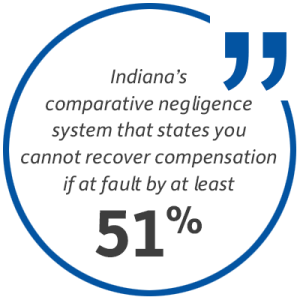If you’ve suffered from a personal injury caused by another party’s negligence, you can file a claim or lawsuit to recover injury compensation. Depending on your case, you may be able to recover compensation for property damage, past and future medical bills, lost wages, loss of future earnings, pain and suffering, and more. If you’re considering filing, you may wonder “how much is my case is worth?”.
Having an estimation can help you seek the appropriate amount of compensation from the negligent party or their insurance company. This is especially important because insurance companies will usually attempt to lowball personal injury victims. They may offer you a settlement that sounds reasonable, but in reality, doesn’t compensate you with the full money you deserve.
The best way you can find out how much your case is worth is by contacting an experienced personal injury attorney who can give you a rough estimate. Of course, their estimation will not be 100% accurate. But with their years of experience handling other personal injury cases, they’ll be able to guide you through the process and advise you on what damages to seek. That said, in this blog, you’ll learn about some of the factors that determine how to value a personal injury case and calculate damages.
How Much Is My Personal Injury Case Worth?
Personal injury damages are primarily intended to compensate an individual who has suffered harm as a result of a party’s negligence. The amount of compensation you can expect to receive will depend on the severity of your injuries, your evidence, and whether or not you’re partially at fault.
There are three basic types of damages awarded in personal injury cases:
- Economic: Economic damages are meant to reimburse you. For example, if you suffered from a car accident that left you with a broken arm, you’d likely seek compensation for your vehicle damages as well as your medical bills. Other types of economic damages include lost wages and loss of earning capacity.
- Non-Economic: Non-economic damages compensate victims for their suffering but are not meant to reimburse them for a particular expense, such as hospital bills or time away from work. If you suffered from a painful injury that also caused you emotional distress, you’d likely seek non-economic damages against the negligent party, such as pain and suffering.
- Punitive: Unlike economic and non-economic damages, punitive damages are meant to punish a defendant rather than compensate a victim. The personal injury victim still receives the money, but the damages are intended to hold the negligent party accountable for their actions while also dissuading others from taking similar actions. Punitive damages are typically awarded in cases where the defendant’s conduct was particularly egregious or reckless, such as cases involving intentional harm, fraud, or gross negligence. These damages are far rarer than compensatory damages.
Proving Your Personal Injury Case
Another critical factor that will determine how much you’re able to recover in your personal injury case is the evidence you present. If you’re unable to prove that the negligent party was responsible for the accident and your resulting injuries, you will not be able to recover compensation.
Some forms of evidence you can use to support your case include:

- Photographs and videos: Visual evidence of the accident scene may corroborate your account that the negligent party was to blame. Pictures of your injuries and property damage can support your claim that the accident caused you to suffer losses.
- Witness statements: Statements from witnesses who saw the accident or who have knowledge of the circumstances surrounding the injury can help you establish liability.
- Police report: If the police were called onto the accident scene, you can use their report as evidence of what occurred and who was to blame.
- Medical records and bills: The negligent party’s insurance company or legal team may try to argue that the accident in question didn’t result in your injuries. Documents proving that you received medical attention shortly after the accident can help establish that the incident injured you.
- Expert testimony: Expert witnesses, such as medical professionals and accident reconstruction specialists, can provide invaluable testimony regarding the cause of the accident and the extent of your injuries.
- Employment and income records: You can use these documents to establish lost wages or loss of earning capacity that resulted from the injury.
The more evidence you have to support your claim, the better your chances of success. Strong evidence can help establish fault, liability, and the extent of your damages, making it more likely that you will receive fair compensation.
Indiana’s Modified Comparative Negligence

Your role in the accident in question will impact the amount of compensation you’re able to recover. Indiana uses a modified comparative negligence system that states if you’re over 51% at fault for an accident, you cannot recover compensation.
As long as you’re under 51% to blame, you can recover damages from the other party, but your percentage of liability will directly impact the amount you can recover. Let’s say that a negligent driver pulled out in front of you suddenly, causing a rear-end collision. If you were speeding at the time of the accident, both you and the other driver may be found partially liable. If road authorities determine you’re 30% at fault for the accident, the maximum amount of damages you can recover will be 30% less than if the other driver was entirely at fault. If your combined damages total $10,000, you’ll only be able to recover $7,000.
Negotiating a Higher Settlement
You’ll need more than just evidence to maximize the amount of compensation you can recover for your injuries — you’ll also need a personal injury attorney. An experienced attorney can provide invaluable legal guidance and argue your case on your behalf, ensuring that you receive the most money possible for your injuries.
If you’re looking for expert personal injury attorneys in Indianapolis, contact Crossen Law Firm. We have over 20 years of experience helping Indiana residents get the money they deserve. Call us at 317-401-8626, or you can contact us online here.

 317-401-8626
317-401-8626 
.jpg)